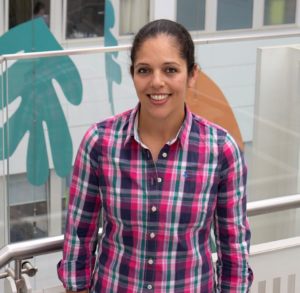By Nadia Soliman (@Nadia_Soliman_)
A question, once posed to me, “Why do you think there aren’t more women in senior academic positions?” My answer, “lack of leadership.”
The absence of women leaders in academia has far-reaching effects, not only within institutions, but also on the scope of research and generation of knowledge. Women are involved in every aspect of academic life, including administration, support services, management, people development, teaching and research. And despite the many policies in place gender inequality persists.
The Writing is On the Wall…
In January 2020 the Wellcome Trust published the findings of their Research Culture Survey. The report is a very sobering read. Poor research culture is leading to unhealthy competition, bullying and harassment, and mental health issues. This culture that prevails is harmful to researchers, our research and ultimately impairs our ability to serve society.
It currently seems that academic career success, particularly in science, is only possible for certain groups of people and that women, LGBTQ+, ethnic minorities and other underrepresented groups are disadvantaged and feel the effects disproportionately. This problem is of concern to us all because research outputs impact every aspects of our lives.
As this blog coincides with International Women’s Day it would be remiss not to focus on the challenges that women face. The numbers speak for themselves. Of the survey respondents 43% have experienced bullying or harassment, and 61 % have witnessed bullying or harassment. Women more likely to have experienced bullying or harassment (49 %) than men (34%) and 60% of survey respondents thought that their working environment was biased in favour of certain groups of people. 44% of women have experienced discrimination. And of further concern, is the impact on research quality with 71% agreeing that research culture promotes quantity over quality. The ‘publish or perish’ mentality is reflected clearly in the survey results.
Career progression in academia depends largely on how much you publish in peer-reviewed journals. A number of studies show that the playing field between men and women is not level; papers authored by women are accepted more often under blind review (Roberts et al. 2016, Budden et al. 2008), women are cited less than men (Maliniak et al 2013) and women are more likely to have higher teaching hours (Guarino and Borden 2017). Women are locked in a vicious cycle: less publishing = less citations, greater teaching = less research time = less publishing and so it continues…resulting in fewer women being able to progress in their careers.
The Need for Change
The examples of poor research integrity, fraud, bullying and harassment behaviours are a symptom of the culture that we have created. The more we value research output alone, e.g. quantity of published studies, citations, etc. the more numb we become to the people that are behind it. Clearly as we have saturated our culture with these metrics the more removed we have become from what is important.
Changing behaviour begins with evolving beliefs – when we begin to value (or reward) something more people will begin to do it. We need to return to our values.
Why values and what values
Values provide the guiding principles for what we do. Organisational values are important because they define us as individuals and as institutions, what we do and how we should do it. They provide the basis for trust and confidence, guiding our thinking and behaviours all the time. I propose a set of core values for researchers; scholarly excellence, mutual respect, collaboration and integrity.
The culture of academic research is highly individualistic and remains entrenched in the independent scientist model of the 19th Century. To find solutions to our complex problems we must become more team and outward orientated; silos need to be busted, trust built, learning and diversity promoted so that we can foster successful collaborations. A focus on scholarly excellence ensures we will make meaningful contributions to human knowledge. Academics should be honest, fair, transparent and accountable, stand up for what is right and uphold moral and ethical values.
Academic Research Leadership for researchers and research to thrive
Leadership is required to prevent our values becoming a list of words, tucked away and ignored in a reference manager. Leaders must link our values to everything that we do. We need to ensure we routinely think and talk about them and ensure that our behaviours uphold them. The behaviours – lead by example, develop others, build teams and strive for team goals, take the hard right over the easy wrong…
Good leadership is key to our success and requires practise and commitment. Something that has not been prioritised or rewarded in academia. Individuals are promoted to senior positions based on their academic credentials, but these do not reflect the skills required to lead. My understanding is that little or no training in personnel management, project management, budget management, teaching, coaching and mentoring is received, and little is available to those who seek it out. And yet these are the skills that are required daily. In this context, the fact that some people struggle with the demands of a role is not a surprise, they haven’t been adequately prepared.
Developing a culture of academic leadership puts people at the centre, both in terms of individual development and in terms of creating a more positive research culture. We need to hold people accountable for their behaviours. As a community we can seek out best practice. We can create a more collegial, equitable, diverse and inclusive environment for researchers and research to thrive. By investing more in our people, improving our teams’ capabilities, and fostering successful collaborations, we as a community will be better equipped to solve the complex problems of our time.

Nadia Soliman is a former British Army Officer, now a PhD student at Imperial College London. Her research aims to improve the feasbilibility, efficiency and accuracy of preclinical systematic reviews while asking key neurobiology questions.